- Home
- Paul Christopher
The Lucifer Gospel
The Lucifer Gospel Read online
The Lucifer Gospel
Paul Christopher
Penguin Group USA
Table of Contents
Copyright Page
Dedication
Acknowledgements
Chapter 1
Chapter 2
Chapter 3
Chapter 4
Chapter 5
Chapter 6
Chapter 7
Chapter 8
Chapter 9
Chapter 10
Chapter 11
Chapter 12
Chapter 13
Chapter 14
Chapter 15
Chapter 16
Chapter 17
Chapter 18
Chapter 19
Chapter 20
Chapter 21
Chapter 22
Chapter 23
Chapter 24
Chapter 25
Chapter 26
Chapter 27
Chapter 28
Chapter 29
Chapter 30
Chapter 31
Chapter 32
Chapter 33
Chapter 34
Chapter 35
EPILOGUE
THE LUCIFER GOSPEL
Finn saw that Hilts had uncovered the top and side of a large stone box. It was rectangular, four feet high, three wide, and appeared to be about six feet long, its front end angled toward the entrance. Carved into the stone was something that looked like the head of Medusa, the hair a mass of writhing snakes. Around the head, like the letters on a coin, was a faint inscription, almost worn away.
“I can’t read it,” Hilts said.
Finn uncapped her canteen, poured water into her palm and swept her hand around the inscription with a quick wiping motion. The letters darkened, instantly readable.
Hilts read the words aloud: “Hic Latito Lux Excito—Vox Luciferus.” He shook his head. “Too bad I never took Latin in school.”
“I did,” said Finn. “My parents insisted. According to them nothing beat a classical education. Good for reading the inscriptions on important old buildings.”
“So what does it say?”
“Here Lies Hidden the Bringer of Light: The Words of Lucifer.”
ONYX
Published by New American Library, a division of
Penguin Group (USA) Inc., 375 Hudson Street,
New York, New York 10014, USA
Penguin Group (Canada), 90 Eglinton Avenue East, Suite 700, Toronto,
Ontario M4P 2Y3, Canada (a division of Pearson Penguin Canada Inc.)
Penguin Books Ltd., 80 Strand, London WC2R 0RL, England
Penguin Ireland, 25 St. Stephen’s Green, Dublin 2,
Ireland (a division of Penguin Books Ltd.)
Penguin Group (Australia), 250 Camberwell Road, Camberwell, Victoria 3124,
Australia (a division of Pearson Australia Group Pty. Ltd.)
Penguin Books India Pvt. Ltd., 11 Community Centre, Panchsheel Park,
New Delhi - 110 017, India
Penguin Group (NZ), cnr Airborne and Rosedale Roads, Albany,
Auckland 1310, New Zealand (a division of Pearson New Zealand Ltd.)
Penguin Books (South Africa) (Pty.) Ltd., 24 Sturdee Avenue,
Rosebank, Johannesburg 2196, South Africa
Penguin Books Ltd., Registered Offices:
80 Strand, London WC2R 0RL, England
First published by Onyx, an imprint of New American Library,
a division of Penguin Group (USA) Inc.
First Printing, August 2006
Copyright © Paul Christopher, 2006
All rights reserved
REGISTERED TRADEMARK—MARCA REGISTRADA
eISBN : 978-1-101-09083-1
Without limiting the rights under copyright reserved above, no part of this publication may be reproduced, stored in or introduced into a retrieval system, or transmitted, in any form, or by any means (electronic, mechanical, photocopying, recording, or otherwise), without the prior written permission of both the copyright owner and the above publisher of this book.
PUBLISHER’S NOTE
This is a work of fiction. Names, characters, places, and incidents either are the product of the author’s imagination or are used fictitiously, and any resemblance to actual persons, living or dead, business establishments, events, or locales is entirely coincidental.
The publisher does not have any control over and does not assume any responsibility for author or third-party Web sites or their content.
The scanning, uploading, and distribution of this book via the Internet or via any other means without the permission of the publisher is illegal and punishable by law. Please purchase only authorized electronic editions, and do not participate in or encourage electronic piracy of copyrighted materials. Your support of the author’s rights is appreciated.
http://us.penguingroup.com
For Lloyd and Sharon because they deserve one at last, my friends in the Czech Republic
ACKNOWLEDGMENTS
Many thanks to Kara Welsh and to Claire Zion and of course to my editor nonpareil, Brent Howard. Long may you prosper.
1
The American Airlines 777 circled the ancient city, invisible within a dark brown smudge of air pollution. Finn Ryan stared out her window on the wide-body jet and frowned. For her first sight of the land of the pharaohs it wasn’t a very inspiring view. Pittsburgh on the Nile.
“Urine,” said the man in the seat beside her. He was craning his neck for a look out the window. He was in his early thirties, dark-haired and handsome if you liked the slightly beat-up, untidy look.
“Pardon me?” Finn answered. She was younger than he was, red-haired and beautiful.
“Urine,” the man repeated. “That’s the first thing you notice when you get off the plane. ”The whole place smells like pee.”
“Thanks for sharing,” said Finn.
The man grinned, his whole face brightening. “Every city has its own particular smell, have you noticed that? London smells like a wet cigar, Dublin smells exactly like a brewery . . . which figures, I guess. Hong Kong reeks like the inside of a chicken farm, New York has this faint undertone of rotting garbage.”
“I never noticed that about New York,” said Finn. Most of her life had been spent in her home-town of Columbus, and then New York City, where she now lived. She hadn’t done an awful lot of traveling.
“That’s because you live there, right?” said the man. “You’ve gotten used to it, that’s all, but it’s there, believe me. Prague smells exactly like a leftover pork roast. Geneva smells like room deodorizer, Paris smells like an old lady’s shoes. In Saigon it’s fish soup. It’s true.”
Finn tried to remember if Columbus had any particular odor. The only thing she could recall was the cool tang of the Scioto River in the summer and apple blossoms in the spring. “What does it smell like where you come from?” she asked.
“A giant car ashtray,” he said. “Los Angeles.” He held out his hand. “My name’s Hilts.”
She took the hand briefly. The grip was strong and dry. “Finn Ryan.”
“Finn. Short for Fiona, right?”
“That’s right,” she said and nodded, surprised. He was quick.
“I like Finn better. Fiona’s kind of . . . prudish, I guess.”
She decided not to respond to that. “Do you have a first name?”
“Hilts. Just Hilts.” He pointed his chin out the window. “First time in Cairo?”
Finn nodded. “First time anywhere, really. I just got my master’s. It seems like I’ve spent my whole life in school.”
“Vacation?”
“Job. Technical illustrator for an archaeological expedition.” She liked the sound of that. Archaeologi
cal expedition. It brought up images of men in pith helmets and King Tut’s tomb. Agatha Christie mysteries. She froze at the thought of the word “mystery.” She’d had enough of that kind of thing the year before to last her a lifetime. She remembered the dying map in the old crypt tunnel and shivered.
“Sounds interesting.”
“We’ll see.” Finn shrugged. “It’s in Libya. The first time they’ve allowed an American dig there in more than fifty years.”
“Libya hasn’t been on the best terms with us for a while,” Hilts said. “The western desert is kind of spooky. It really is like a frozen sea. The worst storm ever, sculpted out of sand. The dunes are like the biggest Hawaiian surfing waves you’ve ever seen, except bigger, and even more dangerous, except for different reasons.” He paused, his grin replaced by a grimace. “The part that’s not dunes is even worse, like an endless rocky beach with no ocean. Boiling in the daytime, freezing cold at night. It’s where Dante got his idea for Hell.”
“You’ve been there?”
Hilts laughed. “Sweetheart, I’ve been everywhere.”
She looked at him; it wasn’t a boast, just a statement of fact. The word “sweetheart” came out like a travel-weary sigh. “So what do you do that takes you everywhere?” Finn asked.
“I’m a photographer,” he answered. Suddenly the aircraft leaned heavily to the right. Finn held her breath. The conversation was cut short by the pinging of the public-address system and the stewardess announcing their final approach. They were landing.
2
Finn was swept out of the aircraft along with five hundred other passengers, most of them Egyptians coming home on vacation to see their families. She moved through the laughing, chattering crowd, eventually found her luggage, and then spent almost an hour in a lineup at a customs desk to clear her bags. The terminal concourse was almost unbearably packed with meeters and greeters, but she eventually made her way to the doors of the glass-fronted building relatively unscathed and unmolested, except for a couple of quick anonymous clutches as she was getting out of the jetway and a clumsy attempt to unzip the bag on her hip and steal her wallet while she was emerging from customs. By the time she’d made her way through the crowds at customs and the even bigger throngs at immigration and finally reached the terminal exit, she’d paid out close to a hundred dollars American in “gratuities” and “fees” to half a dozen airport employees and officials.
When she stepped out of the building the heat hit her like a fist. So did the smell. On the ground the pollution was almost invisible, just a metallic haze in the distance, but the stink was just like the guy Hilts had said. It smelled like a giant litter box. Finn almost laughed out loud. All those years in school and it had come to this.
She looked around. There were people everywhere. Thousands of them. Tens of thousands of them, and they all seemed to know exactly where they were going. About half the men were wearing Western dress, while the other half wore a bewildering variety of the long flowing robes called jelabia. Some were turbaned, some wore small white embroidered skullcaps she knew were called tagiyahs, and others wore the Lawrence of Arabia-style kafiya with their braided silk-rope circlets. The women, dressed in skirts or in the more traditional robes, all had their heads covered, some only with scarves, while others were fully veiled. Her own copper-colored hair, tied back in a ponytail and barely covered by her battered old Toronto Blue Jays baseball cap, was drawing a lot of attention from the men, and none of it good.
Cars, trucks, minibuses, scooters, taxis, and tour busses crowded the curb. Horns blared, people yelled and gestured; there was even a horse-drawn cart with huge rubber wheels piled high with battered hubcaps. Finn found herself grinning broadly. It was hot as hell and blindingly sunny. The sounds were painfully loud and the traffic added its own sour smell to the air. It was a madhouse.
And it was wonderful.
With her carry-on in one hand and dragging a suitcase behind her, Finn threaded her way through the bustling crowd looking for the driver that had been promised. She’d been expecting an appropriately adventurous Discovery Channel Toyota Land Cruiser, or better yet, a Land Rover. What she got was a distressingly rusted Fiat ambulance that at some stage in its long career had been converted into a minibus. Once upon a time the Fiat had been red, but it had long since faded to pink. Finn could still see the almost invisible white cross on the door and the word ’emergency” along the side. Standing beside it was a young man in blue jeans, a skintight Shoenfelt T-shirt, and shiny Elvis Presley hair. He looked about sixteen, but she knew he had to be older than that. He was smoking a cigarette and clearly trying to look like Al Pacino in Scarface. He was carrying a cardboard sign that read ADAMSON EXPEDITION. Her smile widened even farther; it was amazing what that word “expedition” could do for your energy level after a long flight in a crowded airplane.
She humped her luggage across the broad sidewalk and crossed the street to the flat-nosed vehicle. “I’m Finn Ryan.”
The young man gave a worldly sigh, breathing twin lines of smoke from his nostrils. He looked ridiculous. “Which one are you?”
“What do you mean?”
“What I said. Field Crew? Lab Crew? Volunteer? Specialist?” His English was perfect and nearly without accent.
“I’m the staff illustrator.”
He nodded, looking her up and down. If he hadn’t been so young she might have called it a leer. “Specialist.”
“Who exactly are you?”
He made a sour face. “Achmed, the driver. Achmed, the translator. Achmed, the labor supervisor.”
“I gather your name is Achmed.”
“You couldn’t pronounce my real name. Americans think all Egyptians are named Achmed, or Abdullah, or Mohammed, so I’m Achmed. Achmed the Egyptian.” He barked out a bitter little laugh.
Finn smiled. “What do Egyptians think all Americans are called?”
“In your case, Ah’mar katha ath nan,” Achmed replied, arching an eyebrow.
“Excuse me?”
“It means red-haired . . . sort of,” said a voice behind her. It was Hilts, the dark-haired photographer from the plane. He was now wearing a battered pair of amber-tinted aviator-style Serengeti Drivers, a very old dark blue peaked cap with gold pilot wings embroidered on the band, and a cracked and ancient leather flying jacket that was far too heavy for the terrible heat. He smoked a fuming, slightly deformed cigarillo. His only luggage was a large gray canvas duffel bag with the name HILTS stenciled on the side.
“I’m Hilts,” he said, leaning close to Achmed, then whispering, “Balaak bennana derri lawTul’a!”
Achmed’s jaw dropped. “Aawwaah! You speak Dardja?”
Hilts rattled off another brief speech in the melodic, high-speed dialect, and the blood ran out of the young Egyptian’s face. He muttered something to Finn, his eyes refusing to meet hers.
Hilts translated. “He apologizes for what he said and for offending you and he also begs your forgiveness.”
“What did he say?”
“You don’t want to know.” He turned back to Achmed. “Why don’t you put our bags on the bus?”
“Yes, of course, Mr. Hilts,” Achmed said with a nod. He began loading the luggage.
“You’re part of the expedition?” Finn asked, surprised.
“I told you, I’m a photographer.”
“You look more like a flyer wearing that getup,” she said, nodding at the cap and jacket.
“That too.” He smiled. “I’m—”
“Don’t tell me,” Finn said and laughed, “you’re an aerial photographer.”
“You’re quick for a girl.”
They climbed into the minibus. Achmed got behind the wheel and they headed into the city. The drive into Cairo was a quick education in the art of automotive mayhem. There were thirteen million people living in Egypt’s capital city, and by the looks of things all of them were in their cars and trying to get somewhere. Most of the vehicles were old and Japanese, Russian, o
r French, and the vast majority were missing at least one body part. All of them were blowing their horns. Red lights were ignored. There were no lanes of any kind and traffic cops were everywhere, having absolutely no effect on anything.

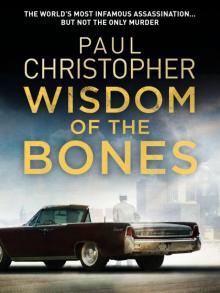 Wisdom of the Bones
Wisdom of the Bones The House of Special Purpose
The House of Special Purpose The Second Assassin
The Second Assassin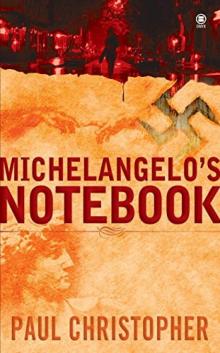 Michelangelo's Notebook
Michelangelo's Notebook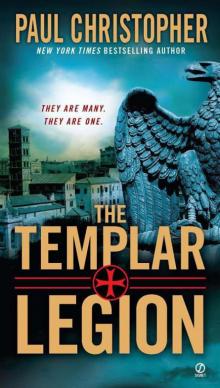 Templar Legion
Templar Legion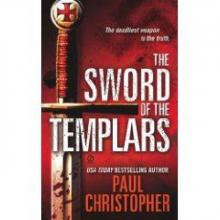 The Sword of the Templars t-1
The Sword of the Templars t-1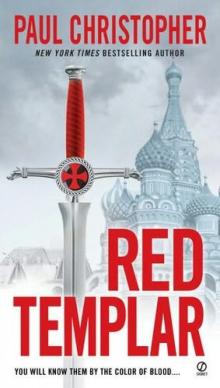 Red Templar
Red Templar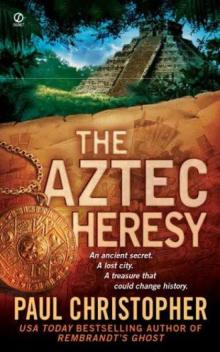 The Aztec Heresy
The Aztec Heresy The Templar Legion
The Templar Legion Rembrandt's Ghost
Rembrandt's Ghost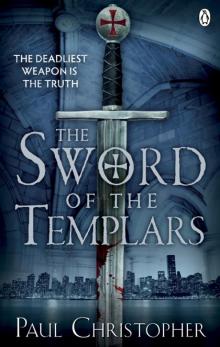 Sword of the Templars
Sword of the Templars The Templar throne t-3
The Templar throne t-3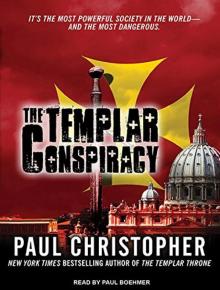 The Templar Conspiracy
The Templar Conspiracy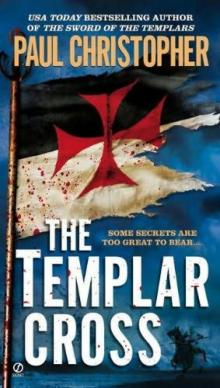 The Templar Cross t-2
The Templar Cross t-2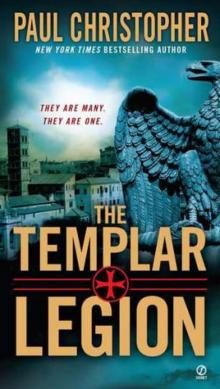 The Templar Legion t-5
The Templar Legion t-5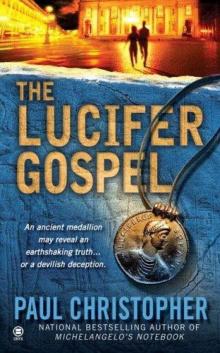 The Lucifer Gospel
The Lucifer Gospel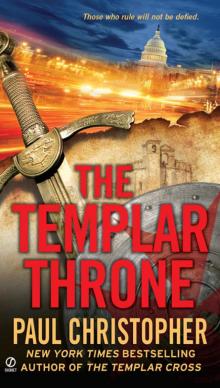 Templar Throne
Templar Throne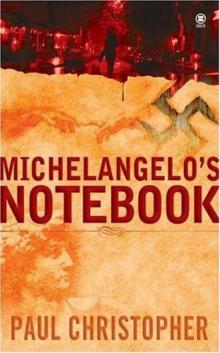 Michelangelo_s Notebook fr-1
Michelangelo_s Notebook fr-1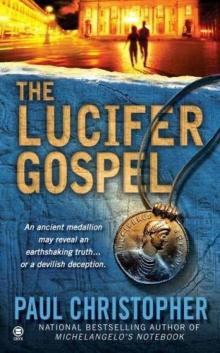 The Lucifer Gospel fr-2
The Lucifer Gospel fr-2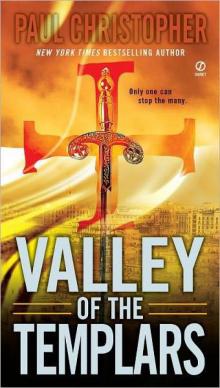 Valley of the Templars ts-7
Valley of the Templars ts-7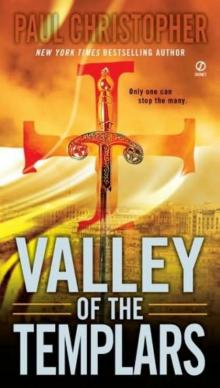 Valley of the Templars
Valley of the Templars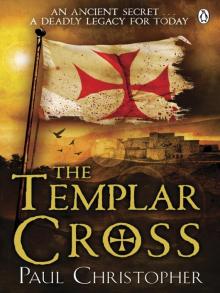 Templar Cross
Templar Cross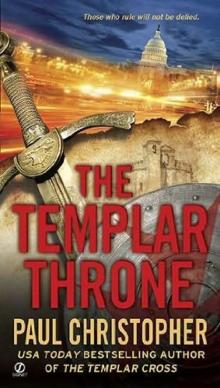 The Templar Throne
The Templar Throne The Templar Cross
The Templar Cross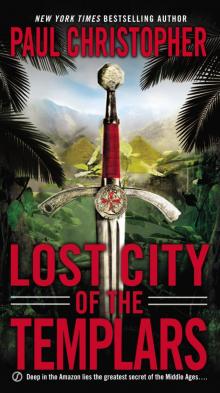 Lost City of the Templars
Lost City of the Templars The Templar conspiracy t-4
The Templar conspiracy t-4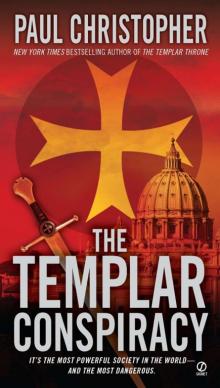 Templar Conspiracy
Templar Conspiracy